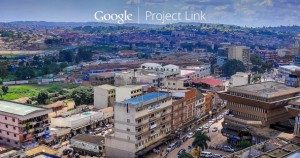Kampala Receives High-Speed Internet from Google
 Uganda’s capital Kampala is the first African city to receive Google Fiber high-speed Internet under an initiative dubbed Project Link.
Uganda’s capital Kampala is the first African city to receive Google Fiber high-speed Internet under an initiative dubbed Project Link.
Google, on Wednesday, opened its fiber-optic network to local mobile operators and internet service providers (ISP). About 100 kilometers of fiber growing out from the centre of Kampala was installed over the last few months to connect Africa’s undersea cables with existing networks.
The carriers will now receive faster data speeds enabling them to build and expand services to customers. Data speeds are expected to improve by a factor of 100 in most areas of the city which is home to three million people.
“With Project Link, we’re enabling local providers to access a first-class network to serve the city of Kampala,” Kai Wulff, an Access Field Director at Google wrote on the Google Africa blog.
“With access to metro fiber, these providers can expand their services in order to meet the demands of a growing population of innovators and entrepreneurs, whether it’s fast connections for local hospitals or high-tech learning tools for young people in the classroom and beyond,” Wulff added.
Three service providers, Orange Uganda, Roke Telkom and One Solutions, have shown interest in using Google fiber to provide faster speeds to end users.
Godfrey Kisekka, Chief Technology Officer for Orange Uganda said “We want our customers in Uganda to access the Internet without capacity constraints, so they can send large files, upload video, download software updates, and more.
“The partnership with Google will enable us to expand our network capacities, thus helping us achieve our ambition to provide users with the best network coverage and high-quality services,” he explained.
Roger Sekaziga, Chief Executive Officer, Roke Telkom also said his company was excited to leverage Google’s platform to scale operations and address niche markets with minimal capital expenditure.
Currently, residents of Kampala have to deal with unreliable connections and pre-broadband speeds. The city is located hundreds of miles away from the coast and therefore hasn’t benefited from the undersea cables that are bringing data to Africa’s shores and coastal towns. Africa is home to 1 billion people, but only 16% are reported to be connected to the internet.
Various cities in the U.S. have benefited from similar Google Fiber initiatives. Google has also initiated Project Loon in New Zealand which involves launching Internet-beaming balloons into the stratosphere.
Photo: Google